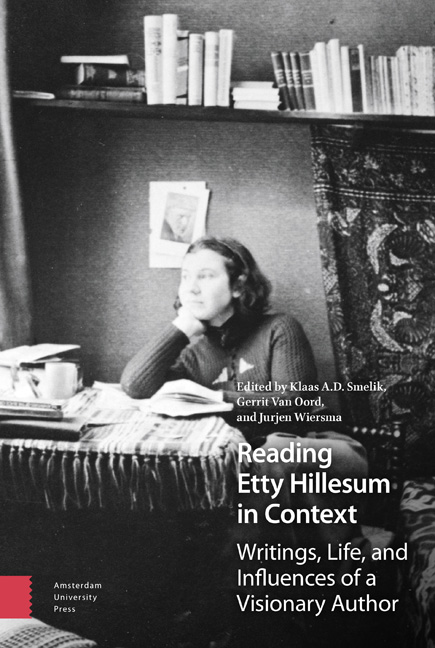21 - Saint, Cyber Phenomenon, Thinker, or Poet Etty Hillesum in Portugal
Published online by Cambridge University Press: 06 January 2021
Summary
Abstract
This article deals with the reception of the Portuguese translations of Etty Hillesum's Diário (Diary, 2008) and Cartas (Letters, 2009). The author reveals how Hillesum's work was appropriated by a Catholic audience in a predominantly Roman Catholic country, and makes the case that the source text of the translations (Het Verstoorde Leven, An Interrupted Life, 1981) greatly influenced the way the Portuguese viewed Hillesum. The author explains that the selections included by Jan Geurt Gaarlandt in Het Verstoorde Leven stress the spiritual aspects in Hillesum's writing, and compromise the historical, philological and material aspects. Nevertheless, a secondary, less religious current in the reception of Hillesum's work exists in Portugal, motivated by a more philosophic and feminist perspective. The author concludes by pointing to the study of Etty Hillesum's work at universities and in dissertations, as well as to a generation of Portuguese novelists who have been inspired by Etty Hillesum.
Keywords: international reception, Portugal, Roman Catholicism, Het Verstoorde Leven, feminism, literary influence, Etty Hillesum
The discussion on the transcription, editing, translation, and reception of Hillesum's work illustrates how unstable texts are and that it is relevant to our understanding of how new meanings are generated. A text is a social product and takes different shapes as it passes from one social milieu to another. Thus, the author is not the only source of validity, and all variant texts carry their own authority. This process does not end with the author's death, but readers participate in it by creating new versions of the text.
This article deals with the reception of Etty Hillesum's work in Portugal. We must bear in mind that only since the 1990s has Dutch literature begun to be translated into Portuguese more regularly, nonetheless there are not many translations of Dutch works which means that the public is not familiar with writers from the Netherlands or Flanders. Second, during the sixteenth century, Jews were forcibly converted or expelled from the country by the Inquisition. Although Portugal is a secular state, it remains predominantly a Roman Catholic country. Finally, Portugal was a neutral country during the Second World War.
- Type
- Chapter
- Information
- Reading Etty Hillesum in ContextWritings, Life, and Influences of a Visionary Author, pp. 419 - 430Publisher: Amsterdam University PressPrint publication year: 2018

